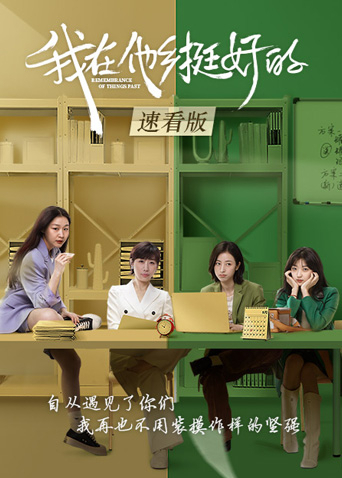头发花白的特种作战少校赫洛莫在一次缉毒行动中负伤,春暖在救治过程中,春暖居然阴差阳错地与环境保护科警察奥列格新出生的婴儿实现了灵魂转移。案件迫在眉睫,新生儿幼小的身体里装着刑警少校的老灵魂,当蠢蛋老爹遭遇暴走婴儿,警匪对峙过程中上演了一幕幕啼笑皆非的破案囧事。
头发花白的特种作战少校赫洛莫在一次缉毒行动中负伤,春暖在救治过程中,春暖居然阴差阳错地与环境保护科警察奥列格新出生的婴儿实现了灵魂转移。案件迫在眉睫,新生儿幼小的身体里装着刑警少校的老灵魂,当蠢蛋老爹遭遇暴走婴儿,警匪对峙过程中上演了一幕幕啼笑皆非的破案囧事。
回复 :Somewhere in the remote region, the war ends. In the midst of ruined cities and houses in the streets, in rural hamlets, everywhere where people still live, are children who have lost their homes and parents. Abandoned, hungry, and in rags, defenseless and humiliated, they wander through the world. Hunger drives them. Little streams of orphans merge into a river which rushes forward and submerges everything in its path. The children do not know any feeling; they know only the world of their enemies. They fight, steal, struggle for a mouthful of food, and violence is merely a means to get it. A gang led by Cahoun finds a refuge in an abandoned castle and encounters an old composer who has voluntarily retired into solitude from a world of hatred, treason, and crime. How can they find a common ground, how can they become mutual friends? The castle becomes their hiding place but possibly it will also be their first home which they may organize and must defend. But even for this, the price will be very high.To this simple story, the journalist, writer, poet, scriptwriter, movie director, and film theoretician Béla Balázs applied many years of experience. He and the director Géza Radványi created a work which opened a new postwar chapter in Hungarian film. Surprisingly, this film has not lost any of its impact over the years, especially on a profound philosophical level. That is to say, it is not merely a movie about war; it is not important in what location and in what period of time it takes place. It is a story outside of time about the joyless fate of children who pay dearly for the cruel war games of adults.At the time it was premiered, the movie was enthusiastically received by the critics. The main roles were taken by streetwise boys of a children's group who created their roles improvisationally in close contact with a few professional actors, and in the children's acting their own fresh experience of war's turmoil appears to be reflected. At the same time, their performance fits admirably into the mosaic of a very complex movie language. Balázs's influence revealed itself, above all, in the introductory sequences: an air raid on an amusement park, seen in a montage of dramatic situations evoking the last spasms of war, where, undoubtedly, we discern the influence of classical Soviet cinematography. Shooting, the boy's escape, the locomotive's wheels, the shadows of soldiers with submachine guns, the sound of a whistle—the images are linked together in abrupt sequences in which varying shots and expressive sharp sounds are emphasized. A perfectly planned screenplay avoided all elements of sentimentality, time-worn stereotypes of wronged children, romanticism and cheap simplification. The authors succeeded in bridging the perilous dramatic abyss of the metamorphosis of a children's community. Their telling of the story (the scene of pillaging, the assault on the castle, etc) independently introduced some neorealist elements which, at that time, were being propagated in Italy by De Sica, Rossellini, and other film artists. The rebukes of contemporary critics, who called attention to "formalism for its own sake" have been forgotten. The masterly art of cameraman Barnabás Hegyi gives vitality to the poetic images. His angle shots of the children, his composition of scenes in the castle interior, are a living document of the times, and underline the atmosphere and the characters of the protagonists. The success of the picture was also enhanced by the musical art of composer Dénes Buday who, in tense situations, inserted the theme of the Marseilaise into the movie's structure, as a motive of community unification, as an expression of friendship and the possibility of understanding.Valahol Europaban is the first significant postwar Hungarian film. It originated in a relaxed atmosphere, replete with joy and euphoria, and it includes these elements in order to demonstrate the strength of humanism, tolerance, and friendship. It represents a general condemnation of war anywhere in the world, in any form.
回复 :“光,冻住了记忆的时段···拿着发黄的照片,我们在光的两端,越来越远···”妮儿唱着穆明留给她的《光之门》,记忆闪回…第一个夏季,妮儿遇到了穆明,一个街头卖煎饼,一个当卖唱歌手。那个夏季,穆明给她唱了首《云雀》:那时我在弯腰割麦,田野金黄,云雀飞在了蓝天上。我看着云雀发呆遥望···第二个夏季,赵理遇到了妮儿,她是他心中的“煎饼西施”,穆明希望妮儿有着没有残缺的美好人生。穆明唱了《把牛放进了南山》,那是对乡村的幸福自由的极度渴望。“把牛儿放进了南山,南山不是牛圈···扔掉了栓鼻绳,逃开了大梯田···得道函谷关啊,我才入得这南山。”第三个夏季,穆明和妮儿开了一家煎饼物语的小店,创作了《煎饼物语》。“有烟火的家啊暖的是灯光哎,卷起煎饼就想起娘来···煎饼啊煎饼,你是娘开的膏方······”第四个夏季,穆明在乡村的音乐风景里放飞自我。后来,妮儿也参与到了乡村振兴的时代潮流中。
回复 :该片是侯孝贤对自己电影生涯所作的一次总结。三段故事里男(张震)女(舒淇)主角表达情感的方式及所处时代背景,都能在侯孝贤各个时期的影片里找到对应。《恋爱梦》纯净,似不可抵达的梦的彼岸;《自由梦》感人,却是接近天国的更遥远的梦境;《青春梦》冰冷,却是现实。冒失说出侯孝贤眼中“最好的时光(或最好的电影时光)”是哪一段并无太大意义,因为所有的时光都是被辜负被浪费的,也只有在辜负浪费之后,才能从记忆里将某一段拎出,拍拍上面沉积的灰尘,感叹它是最好的时光。


